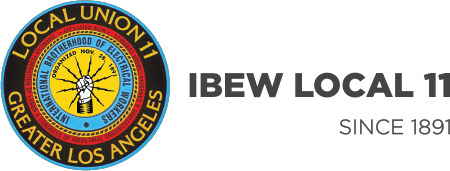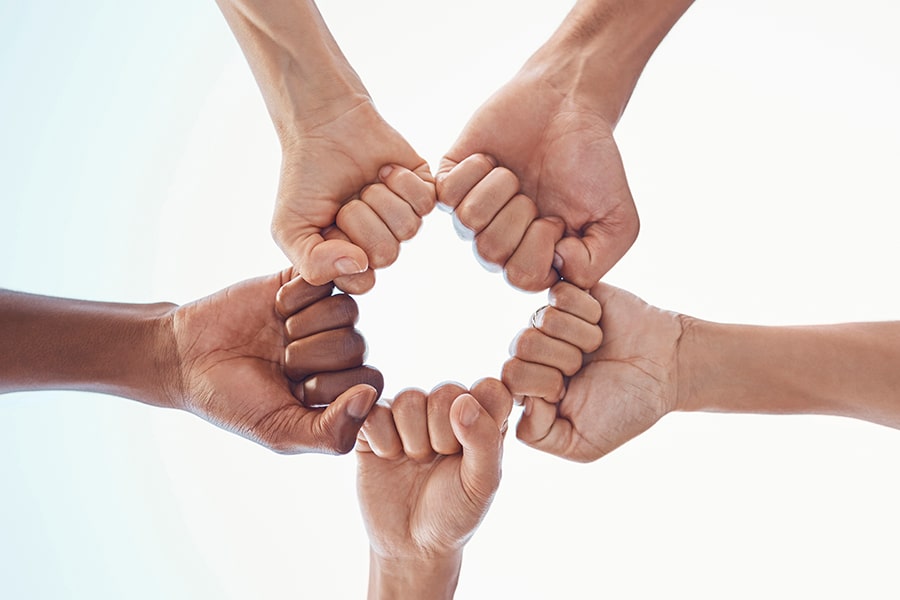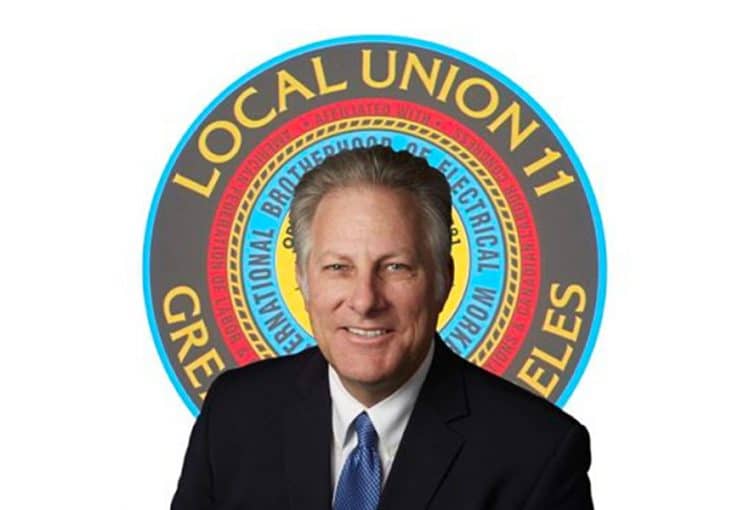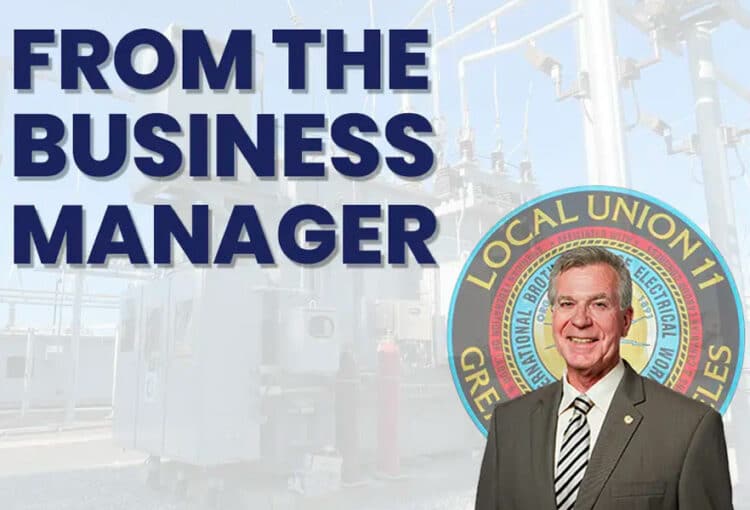IBEW 11 Steps Up to Put Members on a Path to Healing and Recovery
By Jeremy Kehoe
The most crowded job site can feel like the loneliest place for an IBEW 11 Brother or Sister struggling in solitude with their mental wellbeing or battling to overcome substance abuse in self-imposed isolation.
IBEW 11 understands that safety extends well beyond the physical. It has prioritized empowering members with access to resources to manage their mental well being and support to plot a path to substance abuse recovery.
IBEW 11 business agents recently completed an intensive, day-long mental health and substance abuse awareness “train the trainer” certification program created by the University of Colorado’s Helen and Arthur E. Johnson Depression Center. The national program, Vital Cog, trains business agents to recognize the signals of someone suffering mental distress or the effects of alcohol or drug addiction and act to deliver assistance and educate members on treatment options.
“What Vital Cog did was train us to recognize the signals of when somebody may be in distress and then teach us how to start a conversation where we learn how to approach someone and ask them hard, sometimes uncomfortable questions sympathetically and empathetically,” said IBEW 11 Safety Officer Mike Costigan. “My thought process had always been, ‘Don’t bring it up because you don’t want to be that person,’ but that’s the opposite of what we’re supposed to do.”
“A big part of (Train the Trainer) is about creating awareness and recognition of what some of these red flags may be and giving coworkers empowerment to say, ‘Hey, I’m a little bit concerned about this person; let me check in and ask some very direct questions,’” said Alex Yannacone, Center Director of Education and Community Programs, who led the IBEW 11 training session. “We give them the tools and verbiage to ask those questions and then have them practice facilitating those exchanges in the training sessions with each other.”
Local 11’s newly certified business agents are now planning to take their Vital Cog knowledge out to train stewards on the job site so they can, in turn, help fellow members who may be struggling.
“Next up is to train our stewards, so if they see someone going through something they can reach out and start a conversation and stay on that path with them to make sure they get their questions answered and get them any assistance they may need,” Costigan said.
The Staggering Numbers
The need for programs like Vital Cog that train members to recognize signs of mental distress, equip them with techniques to assist fellow local Brothers and Sisters in need, and offer them access to vital treatment resources is so critical because the numbers are so staggering.
Roughly 15 percent of tradespeople struggle with substance abuse, twice the rate of the general population. The building trades make up about 7 percent of the U.S. workforce but account for 16 percent of opioid overdoses, according to the nonprofit Center for Construction Research and Training.
The construction industry has one of the highest suicide rates of any profession, with male construction workers’ suicide rate 75 percent higher than that of men in the general population, according to the Centers for Disease Control and Prevention. In 2022 alone, an estimated 6,000 construction workers died by suicide – six times the number of workers who died from job-related injuries.
The demands of union work are especially fertile soil for mental health and substance abuse struggles. Long commutes to job sites, extended time away from family, chronic pain from backbreaking work, the demands and expectations of exacting work that require perfection, and feast-or-famine job schedules that feed financial stress all contribute to a toxic combination where individual stressors can quickly snowball into overwhelming, life-encompassing events.
“You Are Not Alone”
One of the industry’s most-stubborn roadblocks to recovery is the implicit stigma and shame members associate with asking for help – the fear of being perceived as weak in a “tough-guy” industry (what Costigan calls a “suck-it-up-buttercup culture”) that traditionally celebrates strength and internal grit above all.
“This is especially true for men, where we think of asking for help as a sign of weakness, where we tend to bury things inside and suffer in silence,” Costigan said. “What I try and tell people is that asking for help is a sign of strength. When someone’s down they should be able to rely on someone who’s up, and someone who’s up then should be looking out for whoever’s down. That’s what we’re trying to do – go out and ask those hard questions, see if we can get people to open up, and then walk that path with them. Members need to know that it’s OK to ask for help. It’s OK to not be OK.”
Treatment and recovery challenges are made more complex by the sheer diversity of IBEW’s membership – Brothers and Sisters from different cultures and ethnic and socio-economic backgrounds, as well as multiple generations of veterans – all who view how to manage their mental health and cope with substance abuse through distinctly divergent lenses.
Studies reveal that construction workers suffer some of the highest rates of anxiety and depression and the lowest rates of seeking help. A study published last September by the North America’s Building Trades Unions found that just 5 percent of trades workers had consulted a mental health professional, compared to 22 percent for the general population.
While there is no single solution to help individual members pave their personal path to recovery, there is a universal message, Costigan said: “You are not alone.”
“You may feel like you’re all by yourself on that path, but there are people in front of you, and there are people behind you,” Costigan said. “So, reach out. Just reach out.”
“We’re excited that IBEW 11 is invested in this training and is committed to use what they’ve learned to go out and build more understanding and awareness,” said Yannacone. “We’re really seeing a shift in people wanting to learn more, get involved, and go out and use this knowledge in a meaningful way to make a difference. In just the last three years the shift has been pretty incredible, and I think we’re going to see that continue because the need is so great.”
Need Help? Reach Out.
Local 11 Recovery Group. In 2022 Costigan partnered with Inside Wireman Zac Solomon to launch the Local 11 Recovery Group, the local’s first-ever, district-by-district substance abuse and mental health recovery program. In these open forums members who may be struggling with their mental health or addiction come together to share and learn from those who have overcome those same physical and psychological battles. Meetings are held on the third Wednesday of every month at 5 pm at the District 4 Hall: 400 Chatsworth Drive in San Fernando.
Members Assistance Program, IBEW’s MAP program is free to members and can help with a multitude of issues including family counseling, legal advice, financial advice, and more. MAP is completely confidential. Members can access MAP by calling 877/225-2267 or logging onto www.liveandworkwell.com Access code: SCIBEW. Members can also pick up MAP pamphlets at their local district office.
Med Expert. Med Expert is a free service dedicated to helping members improve their health and receive immediate responses from medical professionals. These include finding a doctor, understanding your prescriptions, getting help with insurance issues, and more. Call: 800.999.1989.
9-8-8 Suicide and Crisis Hotline. 9-8-8 is the federal suicide and crisis lifeline that provides confidential emotional support to people in suicidal crisis or emotional distress 24 hours a day, 7 days a week, across the United







